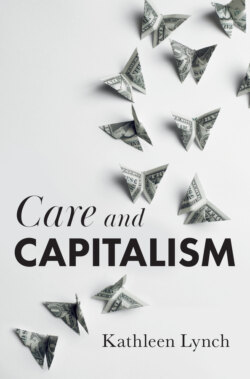Читать книгу Care and Capitalism - Kathleen Lynch - Страница 41
Care as Abject
ОглавлениеAs noted in chapter 6, the Cartesian philosophical distinction between mind and body, between thinking things and extended things, had important implications for women and indigenous people. Within that paradigm, not all humans were defined as fully human thinking beings, and this included slaves, women and indigenous peoples; they became part of the non-human, so-called extended things, part of nature rather than society. Thus, Cartesian logic was built on and legitimated the exploitation and domination of nature, and of those things equated with nature, among them women (Patel and Moore 2018: 45–55).
Given the conceptualization of women as an object of use, it was inevitable that their caring work would also be open to exploitation. What was feminine was inferior, and what the feminine character produced was of less value simply because it was produced by a woman (De Beauvoir 1993). Even when women entered into the work of animal rationale or homo faber, they still found that their work was not granted equal standing (Smith 1987). Women poets were not seen as writing about matters of universal interest (Boland 1996).14 There is no profession or job that women dominate that is comparable in status and power to that of men, even when that job of work is in the public domain (Witz and Savage 1991).
